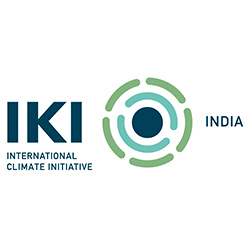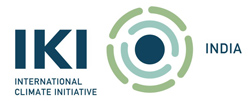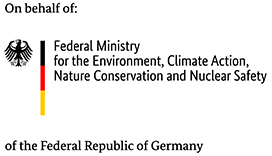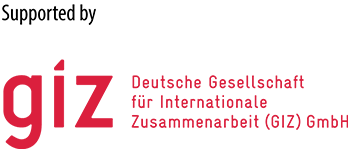Mitigation of Climate Change
IKI provides support to partner countries for developing and implementing innovative instruments for mitigating their greenhouse gas emissions. The ultimate goal is to transform economic and supply structures so that they are sustainable and carbon-neutral. At the level of political governance, nationally determined contributions (NDCs) and long-term strategies (LTS) are essential tools. The IKI also supports the development of systems for measurement, reporting and verification (MRV) of greenhouse gas emissions and mitigation activities. A large number of projects also pursue the goal of mobilising public and private capital for climate change mitigation. The mitigation funding area addresses policy consulting, capacity building and training measures, as well as cooperation on technologies.
Know MoreProjects

2050 is now: Aligning Climate Action with Long-Term Climate and Development Goals On-going
Project Lead: Ulka KelkarThis project will provide governments, in-country research institutes, and other relevant stakeholders with tools and analysis to strengthen Long-term strategies on the mitigation of greenhouse gases ...
Read More →
.jpeg)
Catalysing Decarbonisation of Indian Steel Completed
Project Lead: Sachin KumarIn response to the increasing steel demand from the construction and infrastructure sectors, this project aims to catalyse the decarbonisation of Indian steel production.
The initiative focuses on cr...
Read More →
.jpg)
Climate Diplomacy Action Programme (CDAP) On-going
Project Lead: Nadja EmmanuelThe Climate Diplomacy Action Programme supports the Federal Foreign Office (AA) in the implementation of the German foreign climate policy and accompanies Germany's climate policy cooperation wi...
Read More →

Climate Partnership Programme III Completed
Project Lead: Yvonne VethPrivate investment and climate-friendly technologies play a crucial role in building a climate-friendly economy in emerging and developing countries. Therefore, the Climate Partnership Programme mobil...
Read More →

Climate Protection in the Industrial Sector Through Solar Process Heat – SOLARPAYBACK Completed
Project Lead: Johannes MichelAs a source of energy, solar heat for industrial processes holds significant potential for reducing greenhouse gas emissions, yet it has not been sufficiently exploited. The project aimed to further d...
Read More →

Climate Smart Cities Completed
Project Lead: Ernst DoeringDynamic urbanization, rapid population growth, and changing consumer and mobility behavior are posing challenges to India’s urban infrastructure. As key sources of greenhouse gas emissions, cities p...
Read More →

Climate Transparency Completed
Project Lead: Gerd LeipoldThe project combined climate assessments and expertise from organizations in G20 countries. The Climate Transparency partnership utilized comparable, concise, and comprehensive data to analyze the G20...
Read More →

Decarbonising Transport in Emerging Economies Completed
Transportation accounts for a significant share of greenhouse gas emissions in emerging economies. Reducing these emissions will significantly contribute to reaching the Nationally Determined Contribu...
Read More →

Development and Management of Nationally Appropriate Mitigation Actions (NAMAs) Completed
Project Lead: Mohammed El-KhawadThe project supported the Ministry of Environment, Forest and Climate Change (MoEFCC) of India in developing two concepts for NAMAs, including the corresponding MRV systems. Both sectors (waste and fo...
Read More →

EcoLogistics: Low Carbon Freight for Sustainable Cities Completed
Project Lead: Sunandan TiwariUrban transport of goods and commodities is a significant source of greenhouse gases in Argentina, Colombia, and India. However, many cities do not adequately address this issue in their mitigation me...
Read More →
Copyright © 2026 All rights reserved




